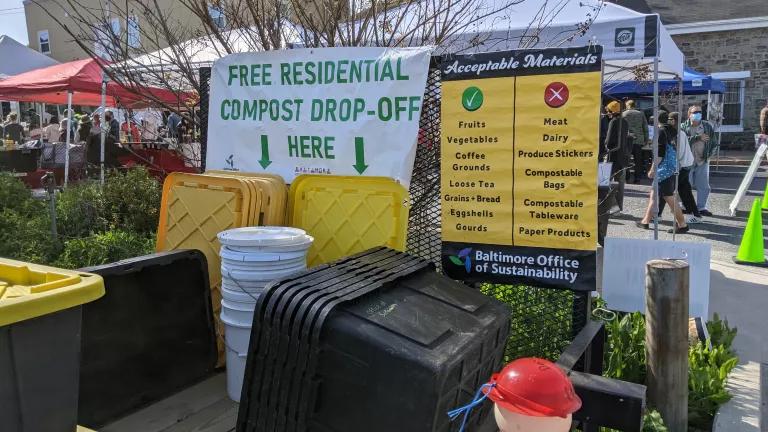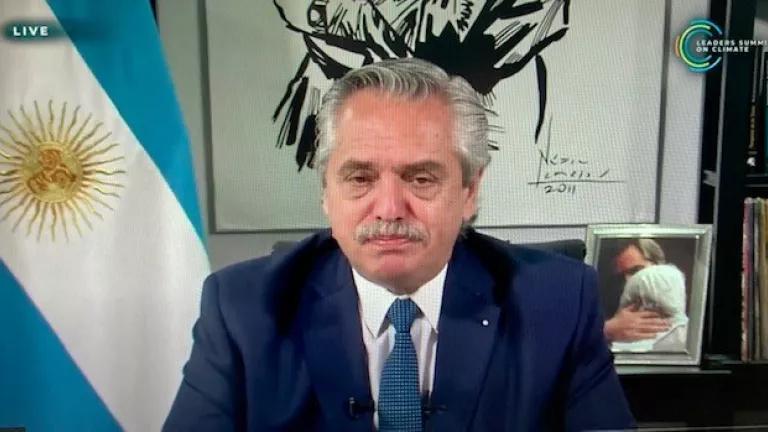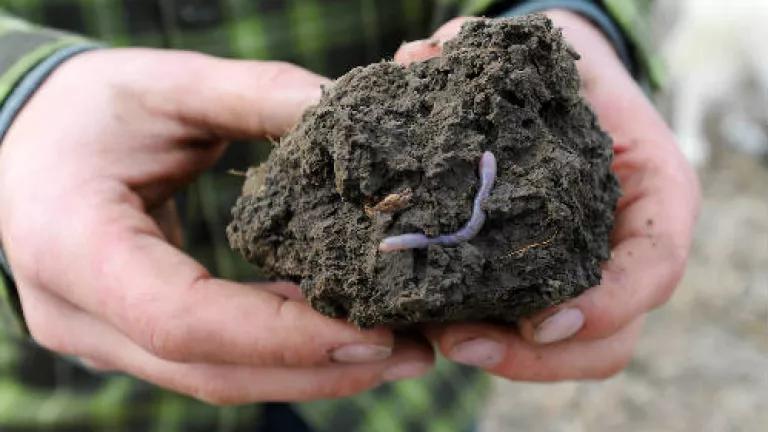
Cincinnati, USA, London, UK, Guelph, CA and Quelimane, MZ receive MUFPP food waste awards
55% of the world’s population lives in cities – that number is expected to be 80% by 2050. Today and in the future, local governments and actors will be critical in ensuring a stable environment, livelihood, and essential human rights for the bulk of the population. For that reason, it was exciting to see mayors and city representatives take the global stage in October to spotlight the great work they are doing locally to combat the climate crisis and improve food systems. NRDC, alongside some of our Food Matters city partners, participated in two city-focused international conferences – the Milan Urban Food Policy Pact (MUFPP) Annual Gathering in Rio de Janeiro, Brazil, and the C40 Global Mayors Summit in Buenos Aires, Argentina.
The FAO estimates that total carbon pollution from global food waste is nearly the same amount as global emissions from road transportation. Climate goals simply cannot be reached without changes in the food system – and food waste is one of those critical levers. Cities, which are responsible for 70% of CO2 emissions, are well-positioned to address wasted food for several reasons, including a desire to reduce costs associated with waste management, an aim to meet climate and sustainability goals, and a need to address hunger among their residents. A cornerstone of NRDC’s food waste work is the Food Matters Initiative. The goal is to work with cross-agency teams comprised of city, county, and local organization representatives to implement specific strategies on food waste reduction, including boosting community composting in partnership with local organizations, partnering with Health Departments to provide food rescue information directly to food businesses, engaging food businesses like restaurants through food waste reduction challenges, and other approaches.
8th MUFPP Global Forum
The Milan Urban Food Policy Pact is a global commitment of Mayors launched in 2015 by the City of Milan with the aim of promoting more sustainable, just and resilient urban food systems. To date, the Pact has been signed by more than 250 cities that are actively addressing food system challenges. The 8th MUFPP Global Forum was a gathering of over 600 attendees from over 160 cities including Mayors, city staff, international organizations, academics and others focusing on the theme “Food to Feed the Climate Justice: Urban Food Solutions for a Fairer World.”
Some highlights from the Forum include:
- NRDC hosted a panel discussion about food waste reduction strategies with representatives from Washington DC, Cincinnati and Chicago. During the discussion, each speaker talked about the key opportunities, barriers and lessons learned that they have experienced related to food waste strategy implementation.
- Caroline Howe from DC’s Office of Small and Local Business Development discussed the Food Waste Innovation Grants and the fact that a lot of D.C. residents and businesses are motivated to reduce food waste because of the city’s rodent problem.
- Oliver Kroner, Cincinnati’s Sustainability Director recounted the city's history around a creative food waste innovation that changed the world – soap—and how Cincinnati’s food waste reduction strategies have continued to advance by signing onto MUFPP, advancing community composting options, collaborating with Hamilton County, and more.
- Gaby Wagener-Sobrero from the Chicago Mayor’s Office talked about how including food waste in the city’s new Climate Action Plan serves as a helpful framework for reducing food waste and has catalyzed more action and investments.
- Representatives from Chicago, New Haven, Baltimore and Bloomberg Associates participated in a panel discussion about advancing food equity in U.S. cities. The group presented ideas for authentically engaging community members and implementing more equitable planning and zoning decisions that can encourage healthier food environments.
- Cincinnati received a special recognition as part of Milan’s annual Pact Awards for their food waste reduction strategies. The winner of the Pact Award within the food waste category was London’s food waste program. Other special recognitions within the food waste category included: Guelph (Canada), Quelimane (Mozambique).
We are excited to learn where next year’s annual gathering will be hosted and are looking forward to continuing to share insights with and learning from global cities to committed to improving food systems. Visit the MUFPP website for more information about signing onto the Pact or contact NRDC if you are a Food Matters city considering signing on.
C40 World Mayors Summit
C40 is a global network of mayors taking urgent action to confront the climate crisis and create a future where everyone can thrive. The C40 World Mayors Summit convened mayors, business leaders, philanthropists, international organizations, youth leaders, and others for their “United in Action” themed summit to share ideas, build relationships and make commitments to build a more sustainable and equitable world.
Some highlights from the Summit include:
- Learning about the support that other climate advocacy leaders are providing to cities, counties and countries to reduce climate emissions. For example, the Global Methane Hub provides support to countries on the Global Methane Pledge, a commitment from the United States, the European Union and over 110 other countries, to set voluntary actions to cut methane emissions at least 30% by 2030. Reducing food waste is a critical methane emissions reduction strategy.
- 13 global mayors signed on to the Pathways to Zero Waste commitment to reduce waste disposal emissions 30% by 2030. We hope that additional cities will sign onto these kinds of commitments to hold each other accountable towards waste and emissions reductions.
- Catching a sneak peek of the new BBC docuseries “Transforming Cities” which showcases cities around the world are combatting climate change and boosting their resilience. One of our Food Matters partner cities, Washington D.C., is featured.
Across both forums, the takeaways are clear. Food waste must be a part of the climate solution – and it’s critical that governments at all levels, including local, state, federal and international leaders, take action. We need to center solutions around people and the places where they work, live and play, especially people and communities around the world that have been historically marginalized and are already dealing with the most significant impacts from climate change. Urban centers with concentrated populations are where much of the food that we grow is consumed and discarded, which is why working with cities on food waste reduction is strategic.





